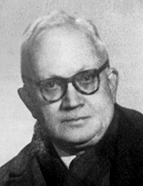

Few things will have escaped his attention: another example is the meanings of the ways of riding a horse, with the different names — à gineta or à brida — not for the detail itself, but as a clarifier of military tactics, as the exact meaning of the rebate or rebato , necessary to understand certain aspects of the fights in Morocco (Études, pp. 345-355). That he didn't want to leave meaningless in obscure passages of chronicles. He dedicated detailed notes to the evacuation of Portuguese forces in Morocco during the reign of King João III: Safim and Azamor in 1541 and Alcácer-Ceguer and Arzila in 1549-1550. Without separating these evacuations from the necessary framework of the Portuguese empire, especially in Asia — a mainly financial framework that explains the sovereign's decision to abandon it. He has a keen sense for everything related with the military. An erudite attention that is neither common nor to be expected from someone who favoured cultural history and, within this, religious aspects — and, within these, spirituality. But he didn't want to leave anything unchecked. Even if insignificant matters, as long as he came across them, had to be investigated and settled. This is the case with the burial place of D. Juan Manuel, where confusion arose between Peñafiel (Castile-La Vella) and Penafiel (Entre-Douro e Minho). A small correction in writings by Joaquim de Carvalho, which was not meaningful. And that is why it is recorded as a note. However, he insists on adding it (Études d’Histoire, p. 122).
Rather than dedicating any extensive or monographic work to Portuguese history, he chose to disseminate his findings through short yet enlightening articles, which he submitted to numerous magazines. The articles he often wrote only hinted at the issues he was dealing with. However, at least two of these unpretentious articles — played a central role in problems that would be revised and continued by other historians: “Le commerce de Berbérie et l’organisation économique de l’empire portugais aux XV e et XVI e Siécles” (from 1935, where he ventured working hypotheses that would later be explored and developed by Vitorino Magalhães Godinho) and “La dualité de la civilisation hispanique et l’histoire religieuse du Portugal” (from 1956, which Joaquim Barradas de Carvalho always provided as his vital reference). Barradas de Carvalho has even written on the subject, in which he categorises Robert Ricard's article as "remarkable".
This work is financed by national funds through FCT - Foundation for Science and Technology, I.P, in the scope of the projects UIDB/04311/2020 and UIDP/04311/2020.
